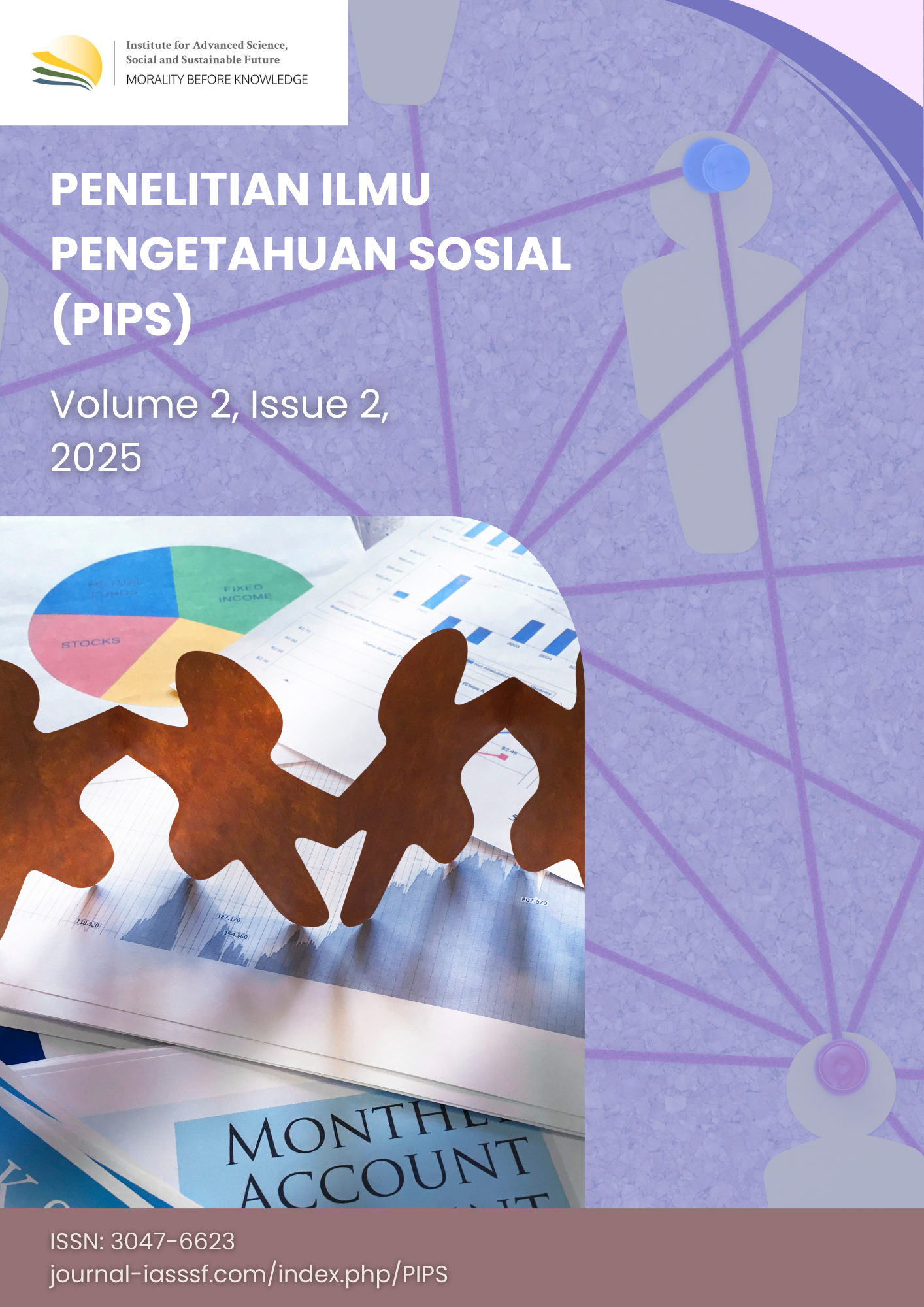Japanese work culture from Hofstede's perspective: An analysis of workers' experiences through social media channels
DOI:
https://doi.org/10.61511/pips.v2i2.2025.2270Keywords:
Jepang, workers, job, experienceAbstract
Background: Japanese office workers are widely recognized for their discipline, innovation, and strong work ethic. These values reflect Japan’s collective dedication to organizational and national advancement. However, this cultural rigor also creates psychological pressure and limited individual freedom. Understanding this phenomenon through Hofstede’s cultural dimensions offers insights into Japan’s distinctive work behavior. Methods: This study employed documentation and literature study techniques. Video interviews of six Japanese workers from the Takashi From Japan YouTube channel were analyzed using Hofstede’s four cultural dimensions: power distance, collectivism vs. individualism, uncertainty avoidance, and masculinity/femininity. Supporting literature was reviewed to validate findings. Finding: Results reveal a high power distance, with workers showing strong obedience toward superiors and organizational hierarchy. Japanese work culture is predominantly collectivist, emphasizing group harmony and social contribution over personal interest. A high level of uncertainty avoidance leads workers to remain in rigid systems to minimize risk. Although less explored, masculinity is evident through hard work, self-sacrifice, and achievement orientation. Overall, the culture fosters stability and loyalty but often causes psychological strain and reduced personal expression. Conclusion: Japanese work culture is characterized by hierarchy, collectivism, and avoidance of uncertainty, reinforcing discipline and organizational stability while creating pressure and emotional fatigue among workers. Novelty/Originality of this article: This study offers a unique qualitative exploration of Japanese work culture through Hofstede’s framework based on real worker experiences from digital media sources, providing fresh insights into cultural dynamics in modern Japan.
References
Abdurakhman, H. (2019). Uchi & Soto: Budaya Jepang dari Keluarga ke Korporasi. Gramedia pustaka utama.
Aris, N. N., Nurita, W., & Meidariani, N. W. (2023). Ikigai Pada Masyarakat Jepang. Jurnal Pendidikan Bahasa Jepang Undiksha, 9(2), 103–110. https://doi.org/10.23887/jpbj.v9i2.55113
Barus, L. B. (2022). Choices of Business Strategy Between Asia And Europe And America: A Literature Review Perspective. Journal of Business Issues, 1(1), 41–45. https://doi.org/10.56282/jbi.v1i1.155
CNBC Indonesia (Direktur). (2023). Biaya Hidup Mahal, Jadi Alasan Warga Jepang Malas Punya Anak. CNBC Indonesia. https://www.youtube.com/watch?v=4mD3HJnyvUE
CNBC International (Direktur). (2018). Why does Japan work so hard? | CNBC Explains. CNBC International. https://www.youtube.com/watch?v=9Y-YJEtxHeo
Damaruci, & Wijaya, E. S. A. (2025). The Wisdom of Happiness: Your Ultimate Guide to Life Skills Intelligence. Penerbit KBM Indonesia.
Diamond, J. (2022). Upheaval. Kepustakaan Populer Gramedia.
Falah, M. F. F. (2025). Pengaruh Gaya Kepemimpinan, Budaya Kerja Kaizen Dan Kompensasi Terhadap Kinerja Karyawan Pada Pekerja Migran Indonesia Di Jepang. Jurnal Ekonomi, Bisnis Dan Sosial, 2(4), 146–159. https://jurnal.uwp.ac.id/feb/index.php/jebs/article/view/512
Febrianty, Divianto, Muhammad, & Ichdan, D. A. (2023). Manajemen Onboarding Karyawan Baru. Perkumpulan Rumah Cemerlang Indonesia.
Fiana, A., Dahidi, A., & Sudjianto, S. (2018). Analisis Penerapan Budaya Kaizen Pada Perusahaan Jepang (Studi Kasus Penggunaan Bahasa Jepang Di PT. Hino Motors Manufacturing Indonesia). EDUJAPAN, 2(1), 11–19. https://ejournal.upi.edu/index.php/edujapan/article/view/17477
Halwani, R. H. (2024). Etos Kerja Dan Agama Islam Dalam Wajah Pembangunan Bangsa. Penerbit Adab.
Hartanto, J. (Ed.). (2018). Metoda Pengumpulan dan Teknik Analisis Data. Penerbit Andi.
Hartono. (t.t.). Geografi: Jelajah Bumi dan Alam Semesta. PT Grafindo Media Pratama.
Haryono, C. G. (2020). Ragam Metode Penelitian Kualitatif Komunikasi. CV Jejak (Jejak Publisher).
Hiroshi, T. (2020). How to Go Rahasia Menjalani Hidup Sehat, Panjang Umur dan Bahagia ala Orang Jepang. Araska Publisher.
Krismanto, S. (2024). Kesenjangan Gender Di Lingkungan Kerja Womenomics 2020-2023 dan Dampaknya Bagi Angka Kelahiran di Jepang. TRANSBORDERS: International Relations Journal, 7(2), 1–12. https://doi.org/10.23969/transborders.v7i2.10272
Liliweri, A. (2019). Konfigurasi Dasar Teori-Teori Komunikasi Antar Budaya. Nusamedia.
Matondang, N., & Setyabudi, Cand. A. L. (2025). 5S-Rahasia Efisiensi Dan Produktivitas Ala Budaya Kerja Jepang. Cendikia Mulia Mandiri.
Osawa, H. (2025). Jalan Menuju Ketenangan Batin: Menggabungkan Kebijaksanaan Jepang dan Ajaran Islam. AT Triangle Co., Ltd.
Prasetiawan, A., Winarno, & Rohmah, N. (2018). Budaya Organisasi. PIP Semarang.
Pribadi, H. (2020). Karoshi: Tentang Gila Kerja di Jepang. Forum Manajemen, 33(4). https://journal.prasetiyamulya.ac.id/journal/index.php/FM/article/view/426
Shindo, Y. (2015). Mengenal Jepang. Buku Kompas.
Sukaimi, S., & Said, M. (2018). Budaya Disiplin Kerja: Sebuah Sketsa Kerja Orang-Orang Jepang. Madania: Jurnal Ilmu-Ilmu Keislaman, 8(2), 228–255. https://doi.org/10.24014/jiik.v8i2.5729
Suprapto, S., & Mohi, W. K. (2024). Globalisasi Dan Perbandingan Administrasi Publik. Mega Press Nusantara.
Supriono, G. (2022). Menuju Indonesia Emas Melalui Budaya Organisasi dan Budaya Kerja. CV. Bintang Semesta Media.
TAKASHii (Direktur). (2024). Why Is Japan’s Work Culture So Outdated? TAKASHii. https://www.youtube.com/watch?v=vnttc2Xy2XY
Warsopurnomo, E. (2020). Kepemimpinan. PIP Semarang.
Wiyatasari, R. (2019). Budaya Senior-Yunior (Senpai-Kohai) dalam Struktur Masyarakat Jepang. Endogami: Jurnal Ilmiah Kajian Antropologi, 2(2), 137–143. https://doi.org/10.14710/endogami.2.2.137-143
Wollah, M., & Lumatauw, L. (2021). View of Pengenalan Budaya Kerja Jepang Sebagai Sistem Edukasi. Jurnal MABP, 3(2). https://jurnal.polimdo.ac.id/index.php/mabp/article/view/540/412
Yustikasari, V. (2022). Karakteristik Etos Kerja Pada Organisasi Di Jepang. CERMIN: Jurnal Manajemen Dan Pendidikan Berbasis Islam Nusantara, 1(2), 1–4. https://ejournal.staidapondokkrempyang.ac.id/index.php/cjmp/article/view/80
Downloads
Published
How to Cite
Issue
Section
Citation Check
License
Copyright (c) 2025 Indah Puspita Sari

This work is licensed under a Creative Commons Attribution 4.0 International License.














